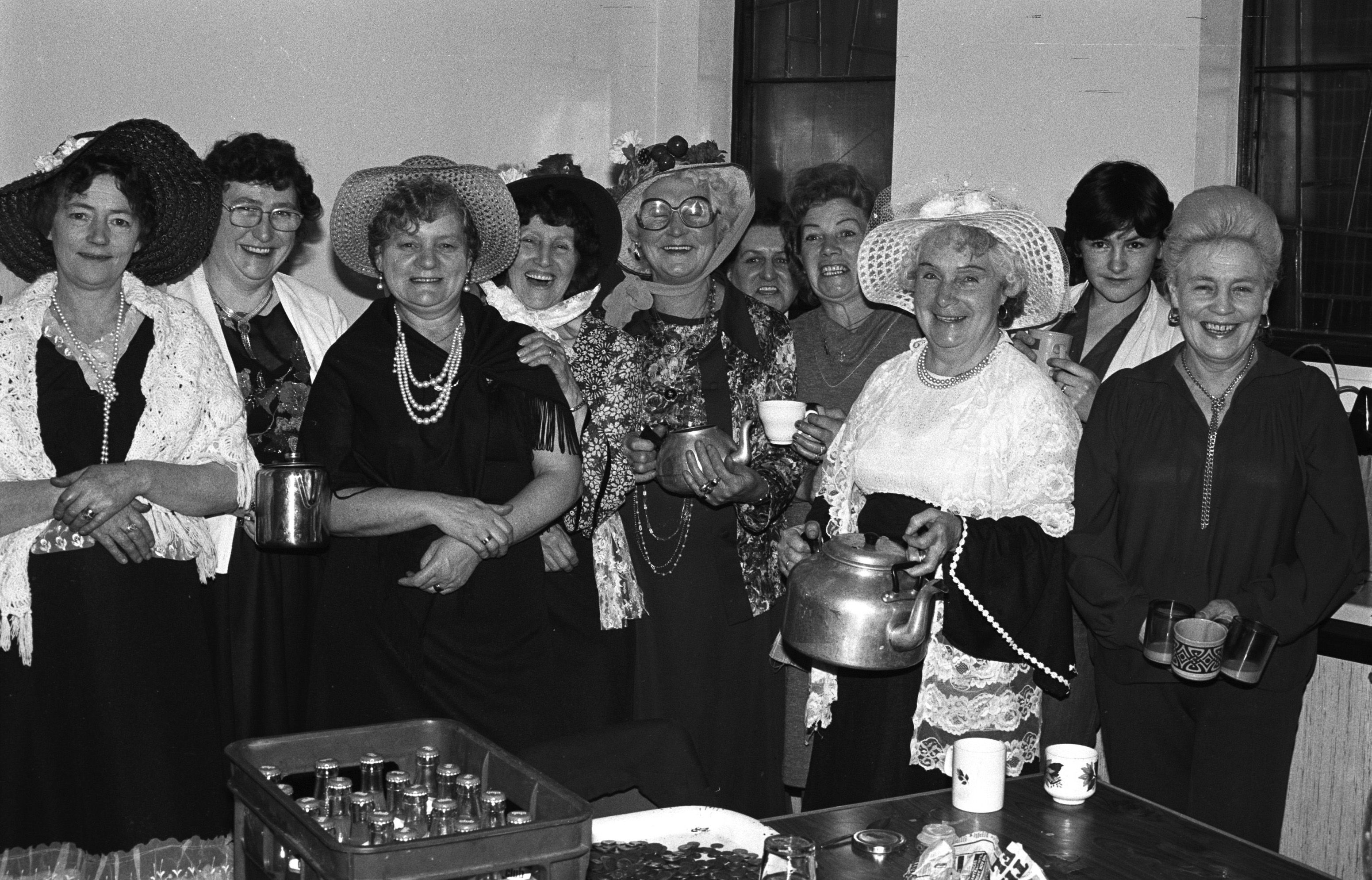We look at the stories that were making the headlines this week in 1982
Phil Doyle, Margaret Butler, Mary Devlin, Bell O'Sullivan and Josie O'Toole at the Corpus Christi Old Time Music Hall in the Parish Centre
Post election backlash in West Belfast
FEARS are growing in West Belfast that the sudden announcement this week by the Housing Executive of cutbacks in redevelopment plans for the west of the city is the first in a deliberate tightening of the screws on Nationalist areas following their backing of Sinn Féin in the Assembly Elections.
Tenants’ Associations in the New Barnsley, Beechmount, St James’ and Springhill areas have been told by the Executive that government money is not now available for the rehab schemes scheduled to start shortly and which people have been waiting for for years. In New Barnsley the people have been told that the government will not provide the funds to finish the rehabilitation schemes already underway.
The Falls Community Council has announced that it will oppose vigorously this attempt to cut back on top priority redevelopment whether it be for financial reasons or pure political blackmail.
The Committee from the Corpus Christi Old Time Muscic Hall in the Parish Centre
Editorial: Can almost sympathise with the Unionists
READING an account of James Prior's speech at Stormont on Tuesday, one can almost sympathise with the Unionists.
They have their own parliament, it's completely Unionist, there's no one there bar themselves. Westminster loves them. You'd think they had it made. Yet the war goes on. The Unionist security forces, RUC and UDR, are under attack daily, and many of them have died, and are still dying, in what seems to be an unending war. The Unionists see this and they regard it, rightly or wrongly, as an attack on their very existence as a community. The nationalist people, a community that has been under attack for as far back as any of us can remember, can understand their frustration. James Prior's facile, tongue-in-cheek clichés and half-truths in Stormont on Tuesday can only add to that frustration.
The unfortunate Unionists find themselves in a situation of their own making. They want a peaceful, stable, Six County State connected to Britain. It's unjust, immoral, undemocratic, but they want it; and they can have it only if the Irish nationalists allow them to have it.
At one time the nationalists, to some extent by consent but mostly by acquiescence, were prepared to let them have their way, but those days are gone, and gone for good – thirteen years of war have ensured that much. And there are no promises that Prior can make that will deliver the nationalist people bound and gagged, to the foot of Carson’s statue. Which, if you think about it, is the only thing that would satisfy true Unionism, and is the logical outcome of all Unionist principles and policies. Britain has tried hard to make this delivery. By vicious oppression, by bribe, by internment, by summary execution, by sectarian assassination, by corruption, coercion, some conciliation – none of these have worked and there seems to be nothing new in the dispensary. So all Dr Prior can prescribe is the mixture as before – in diluted or concentrated form.
Prior, and his government, are as little use to the Unionists as they are to us. We know it, and expect nothing from them. But the Unionists have no-one else to turn to. They're in a hell of a way – and one can almost sympathise with them.
Holy Trinity Primary School fashion show
Back to work at Eastwoods
AS fifty-eight workers at Eastwood's scrap yard on Andersonstown Road returned to work last Monday after seven weeks on strike, one of the organisers told our reporter: "We've unionised the firm – which was what we set out to do.”
Agreement to return to work was reached at the weekend after a series of meetings involving unions, management and the Labour Relations Agency. At these meetings, the management agreed to abide by a pay-off procedure drawn up by the Labour Relations Agency. Under the procedure, the principle of ‘last in, first out' would be applied in all future pay-offs at the firm; and it was also agreed that the unions would be consulted before any workers would be paid off.
"We're quite happy with the outcome of the strike action." said the organiser.
"Eastwoods have agreed to grant the unions proper recognition. When this strike began six weeks ago, ten per cent of our workforce were in the union. This figure has now risen to over ninety percent."
The strike began on 14th October, when union members objected to the method employed by management in dismissing twelve workers. At the time the firm announced that another fifty men would be laid off by Christmas, but with the return to work this week, it is understood that efforts will be made to maintain the present level of the workforce and that no further pay-offs will occur before Christmas. The strike involved fifty-eight of the seventy-two manual workers left following the twelve dismissals.
Holy Trinity Primary School fashion show








